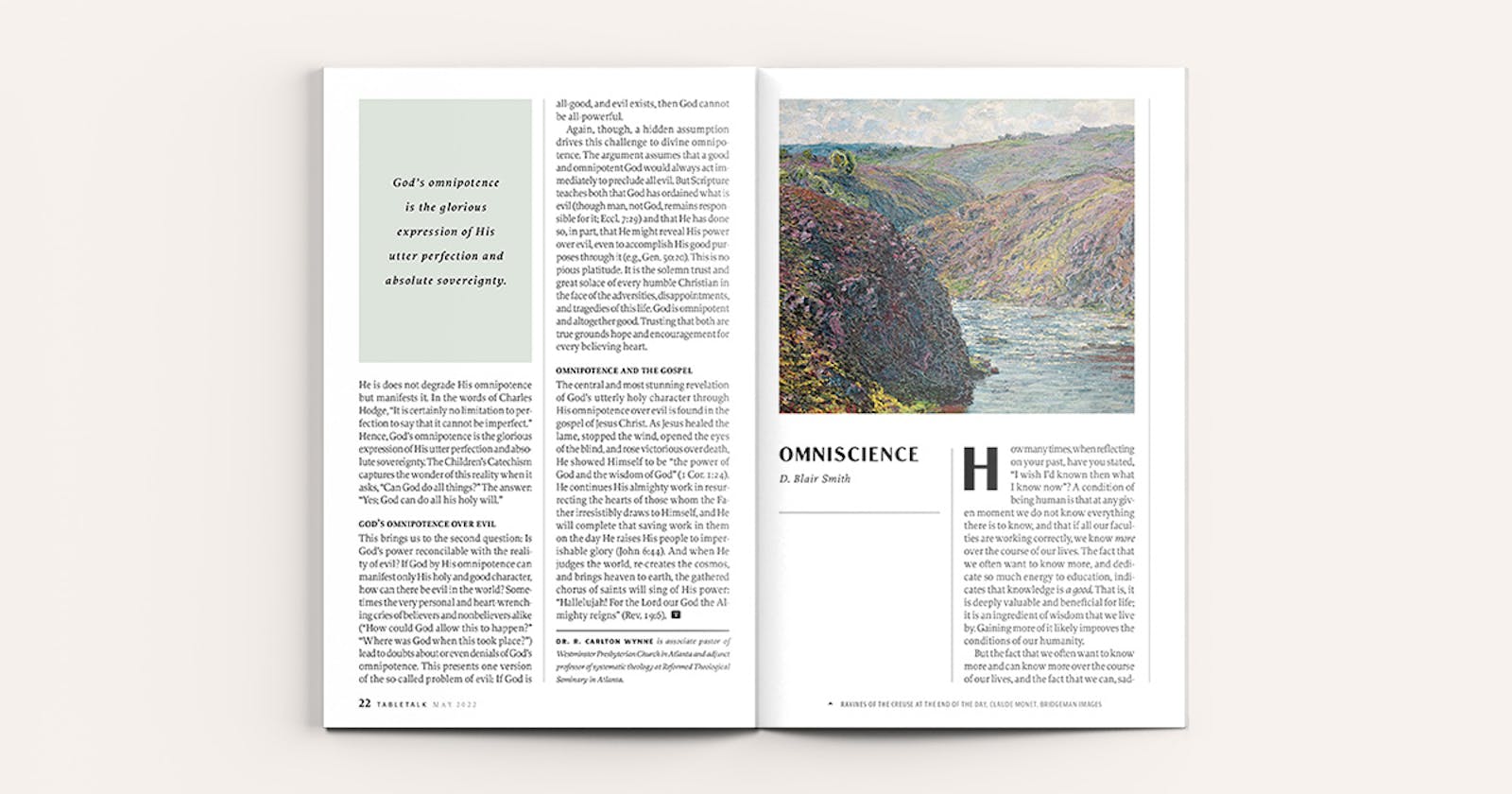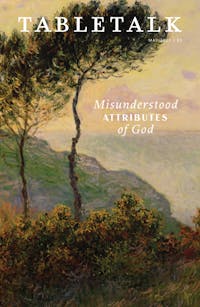
Request your free, three-month trial to Tabletalk magazine. You’ll receive the print issue monthly and gain immediate digital access to decades of archives. This trial is risk-free. No credit card required.
Try Tabletalk NowAlready receive Tabletalk magazine every month?
Verify your email address to gain unlimited access.
How many times, when reflecting on your past, have you stated, “I wish I’d known then what I know now”? A condition of being human is that at any given moment we do not know everything there is to know, and that if all our faculties are working correctly, we know more over the course of our lives. The fact that we often want to know more, and dedicate so much energy to education, indicates that knowledge is a good. That is, it is deeply valuable and beneficial for life; it is an ingredient of wisdom that we live by. Gaining more of it likely improves the conditions of our humanity.
But the fact that we often want to know more and can know more over the course of our lives, and the fact that we can, sadly, lose knowledge, means that human knowledge is dynamic yet limited. Even the smartest people we know, who with little apparent effort know interesting facts and understand complex theories, still had to learn these things. Human knowledge, even the most brilliant human knowledge, is not all-knowing, it is not omniscient, and it requires effort.
The same is not so with God. Starting off with some thoughts about human knowledge highlights this, because often our knowledge of God’s attributes, especially His incommunicable ones, comes to us by way of negating something about them in comparison to us. That is to say, God is so great, He is so mighty, and His nature is so different from ours that to speak of what He is like, we must start with what He is not like. God Himself speaks this way in Scripture: “For I the Lord do not change” (Mal. 3:6).
A.W. Tozer defined God’s omniscience succinctly: “To say that God is omniscient is to say that He possesses perfect knowledge and therefore has no need to learn. But it is more: it is to say that God has never learned and cannot learn.”
What we hold imperfectly, God holds perfectly. To suggest that God could not know something is dismissed by Scripture as an absurdity: “He who planted the ear, does he not hear? He who formed the eye, does he not see?” (Ps. 94:9). God’s knowledge is perfect or complete. If you ask me something about Toledo, Ohio, I can say a lot; it’s where I grew up. If you ask me about the country of Luxembourg, I can say very little; I’ve never been there. Human knowledge knows some things better than others. God knows all things equally well. There’s no Eureka! with God—He never discovers, never is surprised, never learns. This is true of all things: “His understanding is unsearchable” (Isa. 40:28). But Scripture especially emphasizes His knowledge of human beings: “No creature is hidden from his sight, but all are naked and exposed to the eyes of him to whom we must give account” (Heb. 4:13).
God’s knowledge is not a matter of sheer volume, however, as if His knowledge were greater and perfect because He knows more stuff than we do. God knows things as God, who stands outside time, who needs nothing, and who depends on no one. Augustine said, “God does not know all creatures . . . because they exist; they exist because he knows them.” In other words, God’s knowing something does not rely on our doing things. I hope to know my grandchildren someday, but that will not happen until my young children eventually have them. My human knowledge is limited by the unfolding of time. Over the last thirty years a teaching known as open theism has said something similar but attributed it to God.
Open theists try to carve out a significant place for freedom of the human will, and to do so they say that God does not know our future actions, but as He lives with us He discovers them as we do them. This is a serious error. It is to make God’s knowledge dependent on the creature and the course of history. Rather, as One who stands outside time, God knows all things at once: “He knows all things instantaneously, simultaneously, from eternity; all things are eternally present to his mind’s eye,” Herman Bavinck says. This knowledge includes every possibility, because in His divine providence God has ordered how all things will come to pass (Ps. 139:16)—down to a sparrow’s falling to the ground (Matt. 10:29). Rightly understanding God’s omniscience helps in discerning theological errors such as open theism.

More positively, God’s omniscience brings comfort to His people and fuels their worship. We might be tempted to think that God’s incomprehensible knowledge creates distance between Him and His people. Quite the opposite. In Psalm 139:1–18, the psalmist considers the most probing, intimate knowledge that God has of him to be “precious” (v. 17). Why? Because he knows that our covenant God is gracious, full of compassion and help (Ps. 116:5–7). William Ames put it profoundly: “Faith leans on the one who knows what is needful for us and is also willing to supply it.”
Beyond God’s knowledge of us, God has a perfect knowledge of Himself. Our very knowledge of Him depends on it, for if God did not know Himself, He wouldn’t have anything to reveal to us. Thanks be to God, He knows Himself—Father, Son, and Holy Spirit—perfectly: “All things have been handed over to me by my Father, and no one knows the Son except the Father, and no one knows the Father except the Son” (Matt. 11:27). Just as the Father and Son fully know one another, so does the Spirit search “the depths of God” (1 Cor. 2:10). Because They know one another perfectly in the divine nature, there is an infinite fullness and richness to the love and joy shared among the persons of the Trinity. It is the same love and joy that God graciously opens to us in the gospel, which when received by us prompts us to sing in love: “Immortal, invisible, God only wise, in light inaccessible hid from our eyes.”
